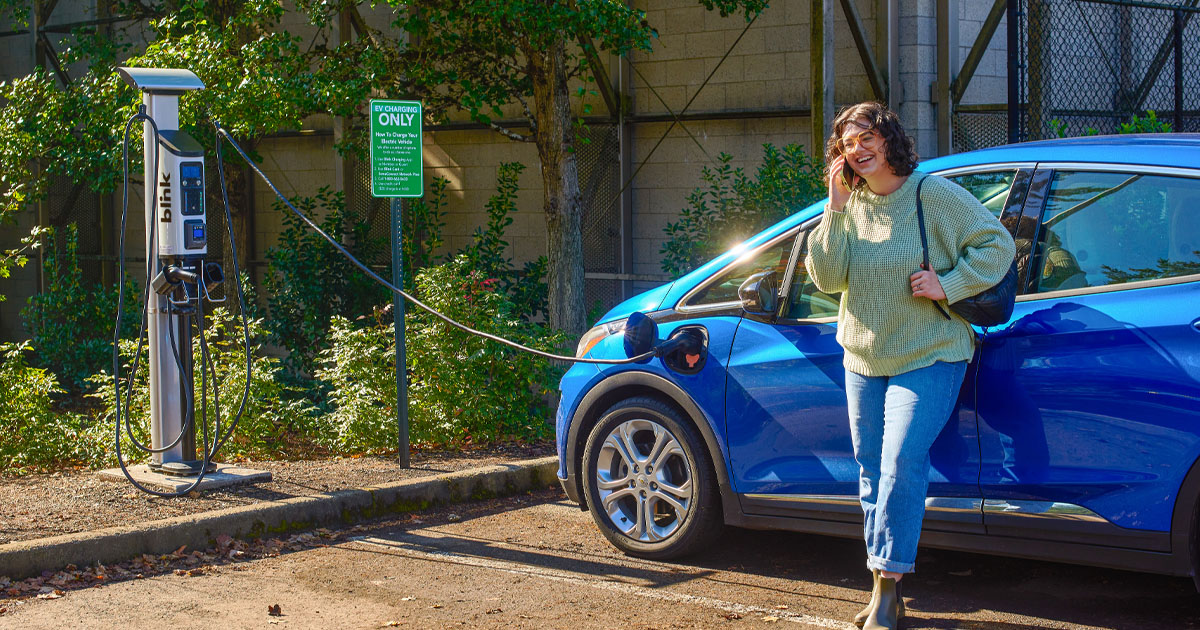New Pushback From Car Dealers On Electric Vehicle Requirements

Table of Contents
Financial Burden of EV Infrastructure Investment
One of the most significant hurdles facing car dealerships is the substantial financial investment required to support the burgeoning EV market. The transition from internal combustion engine (ICE) vehicles to EVs demands a considerable upfront investment in infrastructure, specialized tools, and employee training. This presents a particularly acute challenge for smaller dealerships with limited resources.
- High initial investment for charging station installation and maintenance: Installing and maintaining EV charging stations requires significant capital expenditure, including the purchase and installation of the chargers themselves, grid upgrades to handle the increased electricity demand, and ongoing maintenance and repair costs.
- Need for specialized EV mechanic training and equipment: Working on EVs requires specialized knowledge and tools, different from those used for gasoline-powered vehicles. Dealerships must invest in training their mechanics and purchasing new diagnostic and repair equipment.
- Potential loss of revenue from reduced service needs compared to gas vehicles: EVs have fewer moving parts than ICE vehicles, leading to potentially less frequent and less extensive maintenance needs, impacting service department revenue.
- Uncertainty about ROI on EV-related infrastructure investments: The return on investment (ROI) for EV infrastructure is uncertain, particularly given the rapidly evolving EV market and technological advancements.
The cost of this infrastructure is substantial. Industry estimates suggest that equipping a dealership for EV service can cost tens or even hundreds of thousands of dollars, a significant burden for many businesses, especially those in rural areas. This financial pressure is a major driver of the pushback against EV mandates.
Challenges in Sales and Marketing of Electric Vehicles
Beyond the infrastructure investment, dealerships also face significant challenges in selling and marketing electric vehicles. The transition requires a fundamental shift in sales strategies, consumer education, and marketing approaches.
- Consumer education and awareness surrounding EVs: Many consumers remain unfamiliar with EVs, their capabilities, and their benefits. Dealerships must invest in educating potential customers about range, charging times, and overall ownership experiences.
- Addressing range anxiety and charging concerns: Range anxiety—the fear of running out of battery power—is a major hurdle in EV adoption. Dealerships need to effectively address these concerns and provide solutions, like highlighting readily available charging infrastructure.
- Competition from established EV brands and new EV-only companies: The EV market is becoming increasingly competitive, with established automakers and new EV-only companies vying for market share. This intensifies pressure on dealerships to adapt quickly and effectively.
- Difficulties in attracting and retaining EV-specialized sales staff: Selling EVs requires specialized knowledge and training. Finding and retaining staff with the necessary expertise can be difficult and costly.
Effective sales and marketing strategies are crucial for success in the EV market. This involves not only investing in training programs for sales staff but also implementing creative marketing campaigns that address consumer concerns and highlight the advantages of EVs.
Concerns about Government Regulations and Mandates
Government regulations and mandates are significantly driving the transition to electric vehicles. While these regulations aim to accelerate EV adoption, they also raise concerns among dealerships.
- Specific targets for EV sales or market share: Many governments are setting ambitious targets for EV sales, placing pressure on dealerships to meet these quotas.
- Incentive programs for EV purchase: While incentive programs can boost EV sales, they can also create complexities in pricing and sales processes for dealerships.
- Regulations on emission standards: Stringent emission standards are pushing the industry towards EVs, but they can also lead to increased compliance costs for dealerships.
- Potential penalties for non-compliance: Failure to meet EV sales targets or comply with regulations can result in significant penalties, adding to the pressure on dealerships.
The perceived lack of flexibility and support from the government in this rapid transition fuels the pushback from dealerships. The debate centers on the pace of EV adoption and the industry's ability to adapt without undue financial strain.
The Impact of EV Mandates on Rural Dealerships
Rural dealerships face unique challenges in adapting to EV mandates. Limited access to electricity and charging infrastructure makes EV sales and service more difficult. The costs associated with upgrading infrastructure are disproportionately high for these smaller businesses, often leading to a potentially unsustainable business model if EV mandates are not carefully considered for their specific circumstances. Servicing and maintaining EVs in rural areas, where specialized technicians might be scarce, presents further difficulties.
Counterarguments and Potential Solutions
While dealerships express legitimate concerns, it's important to acknowledge the compelling reasons behind government initiatives to promote EV adoption: environmental benefits, national security concerns regarding oil dependence, and the advancement of crucial technologies.
Potential solutions to alleviate dealer concerns include:
- Government subsidies for infrastructure development: Financial incentives can significantly reduce the burden of EV infrastructure investment for dealerships.
- Comprehensive training programs: Government-funded training programs can help dealerships acquire the necessary skills and knowledge to service and sell EVs.
- Extended support for the transition: A phased approach to EV mandates, combined with extended support during the transition period, can help dealerships adapt more effectively.
Conclusion: Navigating the Future of Electric Vehicle Sales
The pushback from car dealerships on electric vehicle requirements highlights the significant challenges they face in adapting to the EV revolution. Financial burdens associated with infrastructure investments, difficulties in sales and marketing, and concerns about government regulations are all contributing factors to this resistance. A collaborative approach is essential to ensure a successful transition to electric vehicles. This requires open dialogue, considering the concerns of dealerships, and exploring solutions that promote responsible and sustainable EV adoption. Contact your representatives, participate in public forums, and support policies that balance environmental goals with the needs of the automobile industry. The future of electric vehicle sales depends on finding a solution that works for everyone, and that includes responsible implementation of electric vehicle requirements.

Featured Posts
-
 Watch Inter Vs Barcelona Uefa Champions League Live Stream
May 08, 2025
Watch Inter Vs Barcelona Uefa Champions League Live Stream
May 08, 2025 -
 Inters Stunning Champions League Victory Over Bayern Munich
May 08, 2025
Inters Stunning Champions League Victory Over Bayern Munich
May 08, 2025 -
 Psg Nantes Maci Gollersiz Berabere Sonuc
May 08, 2025
Psg Nantes Maci Gollersiz Berabere Sonuc
May 08, 2025 -
 Bitcoin Price Prediction 1 500 Growth In Five Years
May 08, 2025
Bitcoin Price Prediction 1 500 Growth In Five Years
May 08, 2025 -
 Vaticano Fieis Esperam O Funeral Do Papa Francisco Em Vigilia Noturna
May 08, 2025
Vaticano Fieis Esperam O Funeral Do Papa Francisco Em Vigilia Noturna
May 08, 2025
Latest Posts
-
 New Trailer Drops For Stephen Kings The Long Walk Adaptation
May 08, 2025
New Trailer Drops For Stephen Kings The Long Walk Adaptation
May 08, 2025 -
 De Andre Jordans Historic Performance In Nuggets Vs Bulls Matchup
May 08, 2025
De Andre Jordans Historic Performance In Nuggets Vs Bulls Matchup
May 08, 2025 -
 The Long Walk Stephen King Adaptation Unveils New Trailer
May 08, 2025
The Long Walk Stephen King Adaptation Unveils New Trailer
May 08, 2025 -
 Nuggets Vs Bulls De Andre Jordans Record Breaking Performance
May 08, 2025
Nuggets Vs Bulls De Andre Jordans Record Breaking Performance
May 08, 2025 -
 De Andre Jordans Historic Night Nuggets Vs Bulls
May 08, 2025
De Andre Jordans Historic Night Nuggets Vs Bulls
May 08, 2025
